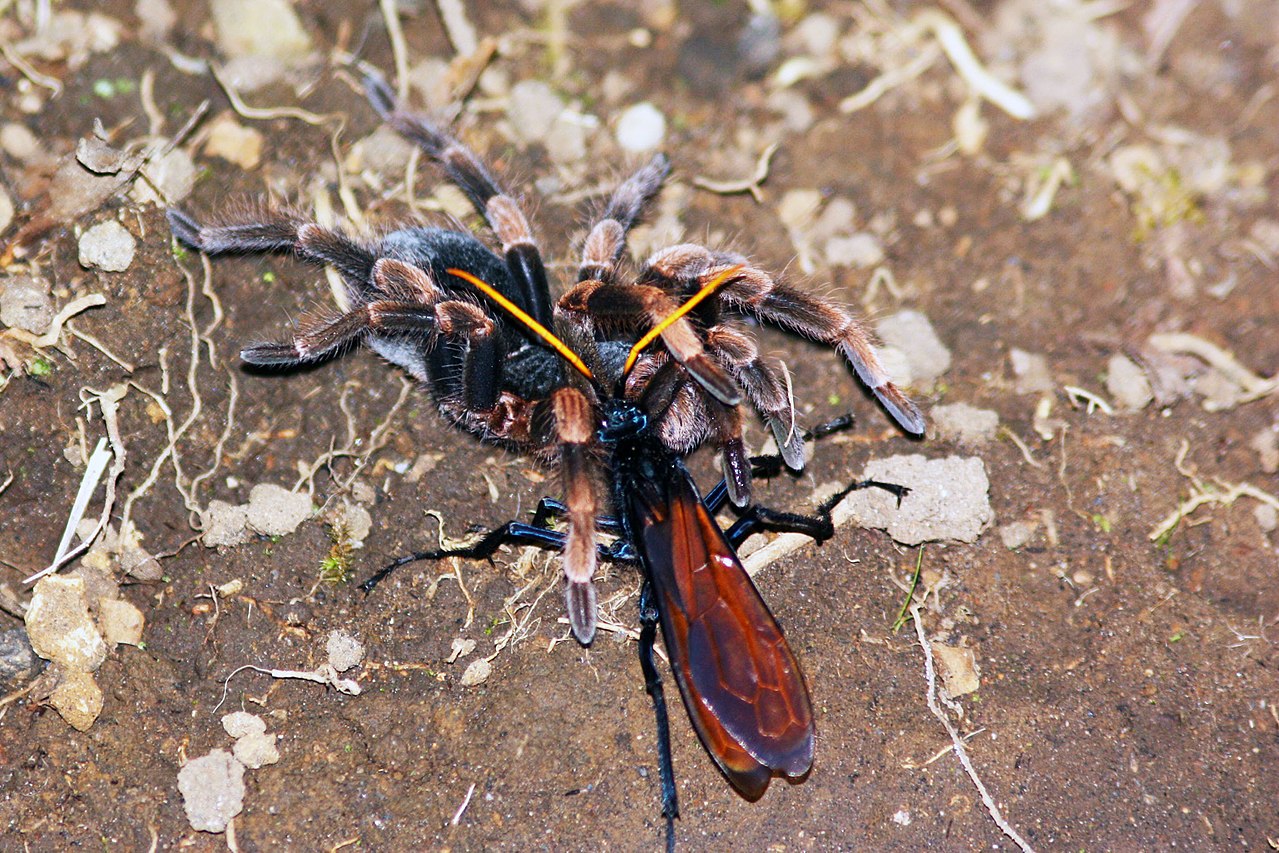Tarantula hawk dragging a paralysed orange-kneed tarantula, Costa Rica
Wasps, you know, yellow jackets, hornets and the solitaries like the Tarantula hawk seen above, are loathed because they sting but ... there are hidden benefits to these fearsome creatures as they maintain environmental balance by keeping the population of a multitude of pests under control.
The study, published in the journal Biological Reviews, analysed 500 scientific reports on stinging wasps. There are 100,000 known wasp species, but 70,000 are parasitic, which are stingless and quite well studied. They are already used in farming to control pests without using insecticides. There are about 22,000 species of bees. “Wasps are the ancestor of bees, so bees are wasps that have forgotten how to hunt,” said Sumner.
Click here for the PDF of the study.



No comments:
Post a Comment